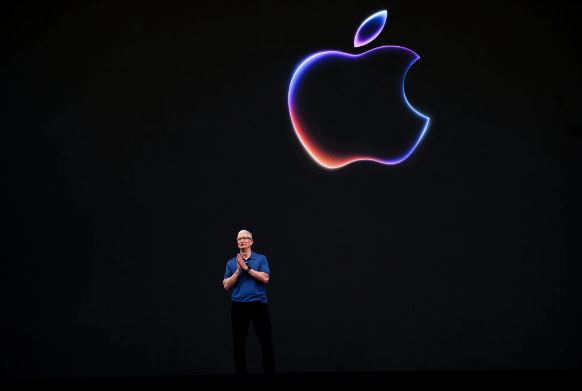Nearly two years after OpenAI spurred a race to incorporate generative artificial intelligence into products, Apple has now entered the competition. On Monday, Apple announced its plans to bring generative AI technology to over a billion iPhone users globally.
During a two-hour presentation at its Silicon Valley campus, Apple unveiled its new system, Apple Intelligence, which will leverage generative AI to enhance various functionalities. This includes prioritizing messages and notifications, as well as offering writing tools capable of proofreading and suggesting improvements in emails, notes, or texts. A major upgrade for Siri, Apple’s virtual assistant, is also part of the plan.
Apple’s integration of AI into iPhones signifies a significant step in mainstreaming artificial intelligence. As a leading name in Silicon Valley, Apple’s endorsement could lend substantial credibility to AI technology, which has faced criticism for its potential inaccuracies and contribution to misinformation.
Apple’s new AI features could also help dispel concerns that the company had fallen behind its competitors in embracing AI. Companies like Microsoft and Nvidia have seen their market values soar due to their aggressive AI initiatives. Earlier this year, Microsoft surpassed Apple as the most valuable technology company.
Apple emphasized that its AI integration would prioritize privacy. The company stated that AI tasks, such as answering questions, creating images, and writing code, would be processed on the iPhone rather than in data centers, reducing the risk of personal information being compromised. For more complex tasks requiring additional computing power, Apple has developed a cloud network using its own semiconductors, designed to enhance privacy.
Apple has partnered with OpenAI, the maker of ChatGPT, to support some of its AI capabilities. Tasks beyond Apple’s system’s capacity will be directed to ChatGPT. For example, users could ask for dinner ideas using specific ingredients, and ChatGPT would provide suggestions. This setup ensures users are aware that ChatGPT, not Apple, is responsible for the responses.
In addition to AI enhancements, Apple announced improvements to its iPhone software. This fall, messaging will include scheduling capabilities and more emoji responses. A redesigned Photos app will make browsing images by topics like pets and travel easier, and users will be able to send high-resolution images to Android smartphones.
Apple’s strengths in the AI race include its talented semiconductor development team, which has been producing chips capable of handling complex AI functions for years. The company also markets itself as better at protecting personal information because it profits from device sales, not advertising.
However, Apple faces challenges that could slow its AI development. The company’s secretive nature has made it difficult to recruit and retain top AI researchers, as it limits the publication of research. Additionally, Apple has been cautious about licensing published material and opposes collecting data without permission, unlike other AI companies.
Siri, Apple’s voice assistant, has frustrated users with its limited conversational abilities. Generative AI could improve Siri by training it on spoken conversations from podcasts and videos, making it more adept at natural language processing.
Apple demonstrated that Siri would now remember the context of previous interactions. For instance, if a user asks for the weather in Muir Woods National Monument and later wants to schedule a hike there, Siri will understand the context. Siri will also perform more tasks within iPhone apps, such as finding photos of a specific person or filling out forms with information from images.
Other AI capabilities Apple showcased include summarizing audio recordings, creating movies from photos based on descriptions, and editing photos by removing background distractions.
The event also highlighted Apple’s relationship with developers, which has been strained due to new European rules requiring third-party payment alternatives in the App Store. These rules challenge Apple’s 30 percent fee on app sales. In response, Apple emphasized the benefits its AI tools would offer developers.
Apple announced plans to expand sales of the Vision Pro, its mixed reality headset, beyond the United States to China, Japan, and Europe. New capabilities for the headset include viewing older photos in three dimensions and creating a virtual display for a Mac.
By entering the AI race, Apple aims to revolutionize the consumer experience and maintain its competitive edge in the tech industry.

